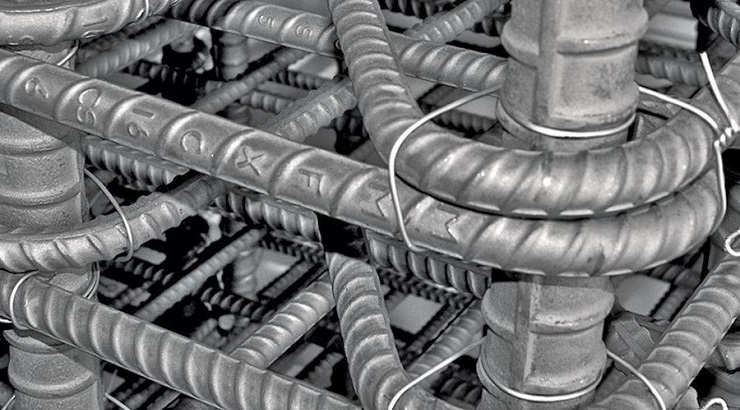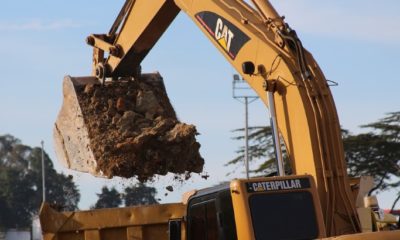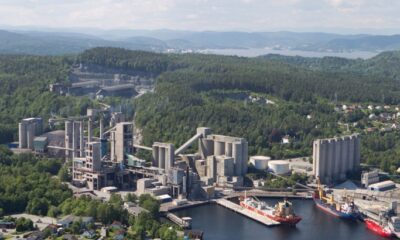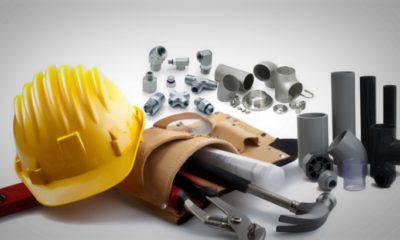Materials & Supplies
Steel Giants Hit With Sh338m Fine for Price Fixing
Nine companies have been found guilty of fixing prices of steel.

Nine steel manufacturers have been fined a record Sh338.85 million by the Competition Authority of Kenya (CAK) for colluding on prices and causing an artificial shortage of construction materials.
The companies, Nail and Steel Products, Brollo Kenya, Blue Nile Wire Products, Tononoka Rolling Mills, Devki Steel Mills, Doshi & Hardware, Corrugated Steel, Jumbo Steel Mills, and Accurate Steel Mills were found guilty of engaging in price fixing by collectively setting prices and price adjustment timelines.
Further, the aforementioned firms, except Accurate Steel Mills, have been penalised for output restrictions by agreeing to limit imports of certain steel components, thereby causing an artificial shortage that raised prices.
Price-fixing is an anticompetitive agreement between two competing sellers to maintain prices at a certain level by controlling supply and demand.
Section 31 of the Competition Act forbids companies from conspiring to control product prices, setting minimum charges, and determining when and to whom to offer discounts — practices that hurt consumers and competitors.
In a statement on Wednesday, CAK said the nine firms were found to have engaged in cartel conduct whose effect was to increase the cost of constructing homes and infrastructure by artificially inflating the prices of steel products.
Highest fine
The highest fine was imposed on Corrugated Steel at Sh86.9 million, followed by Tononoka and Devki, at Sh62.7 million and Sh46.3 million, respectively.
Doshi was fined Sh41.6 million, Jumbo Steel Mills Sh33.1 million, Accurate Steel Mills Sh26.8 million, Nail and Steel Products Sh22.8 million, Brollo Kenya Sh9.4 million, and Blue Nile Wire Products will pay Sh9.2 million.
The authority said the penalties were proportionate to the offense committed and were meant to restore competition in the sector and deter companies from deploying anticompetitive practices as a business strategy.
“This penalty is the highest ever imposed by the Authority, and it should send a clear message that cartel conduct is illegal under the Competition Act,” CAK acting Director General Dr Adano Wario said.
Supply and demand
He added that, in a liberalized economy, the forces of supply and demand should determine prices, free from manipulative business practices.
The administration of justice marks the end of a process that began in August 2020, when the Authority conducted a countrywide covert field screening.
The intelligence gathered from the exercise pointed to coordinated conduct by manufacturers, specifically on pricing and output restrictions.
In December 2021, CAK raided the Nairobi, Mombasa, and Kisumu premises of the steel giants in order to secure the necessary evidence.
The raids came in the wake of an unprecedented steel price escalation caused by rising global demand after the re-opening of economies amid logistical challenges due to Covid-19 and the war in Ukraine.
RELATED: Tough Times for Builders as Steel Prices Hit the Roof
Steel manufacturers blamed the price hikes on the weakening Kenyan currency, which made imported raw materials even more expensive.
However, CAK believed that the local pricing escalation had to do with issues beyond the said external factors, pointing to possible price collusion.
Upon reviewing the evidence and remarks made by the affected companies, the authority determined that the companies breached the Competition Act.
In February 2021, the competition watchdog revealed it had found Crown Paint, Basco Products Ltd., Kansai Plascon and Galaxy Paints guilty of price-fixing.
RELATED: Steel giants fight Sh338m ‘price fixing’ penalty
The agency had in July 2018 raided the four paint manufacturers after receiving allegations of price collusion between the companies and some distributors.
The probe ended in July 2019, after which punishment was administered.
Basco, which did not challenge the ruling, paid a fine of Sh20.8 million. The company also pledged to cease and desist from similar collusion in the future.












